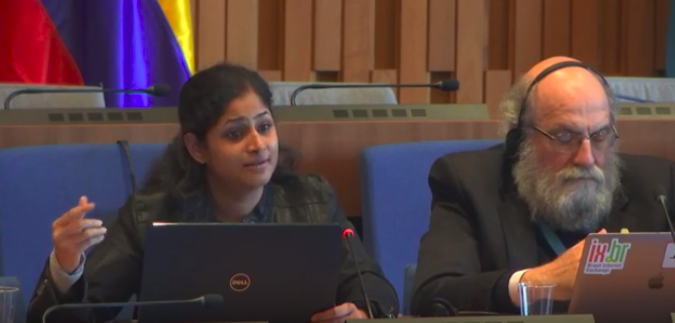It for Change, as part of the Global Digital Justice Forum, submitted its text proposals on the Zero Draft of the WSIS+20 Outcome document. We cautioned against an overly optimistic reading of the progress towards WSIS Commitments and urged an honest acknowledgement that a profit-centric technological revolution has failed to open up pathways…
Internet Governance
The nature of evolution of the Internet is an important determinant of social change. The Internet is no longer simply a technical platform about which technical experts are best placed to take important decisions. Who then should shape the evolution of the Internet, and how? Users determining the Internet's trajectory is largely a myth, though some remarkable oases of alternative practices amongst committed techies and other 'power users' do exist. To the extent the user has a role, it is in her capacity as a consumer, which capacity is very unequally distributed between affluent and marginalised groups. Largely, it is corporatist and statist powers that are shaping the Internet. We believe that ordinary people and communities must have greater control in shaping the Internet for a future society that is egalitarian. Towards this end, we undertake research, and advocate national and global norms and policies that recognise, and underpin, the Internet as a force for equality and social justice.
RECENT
IT for Change submitted a response to the public consultation to assess the EU's Horizontal and Non-Horizontal Merger Guidelines on 3 September 2025. We provided targeted inputs to the 'digitalisation' chapter to highlight the novel concerns emerging from the platform economy that remain largely unaddressed in the current iteration of the…
Our Executive Director, Anita Gurumurthy, is a member of the UN CSTD Working Group on Data Governance. In line with its mandate under Para 48 of the UN Global Digital Compact, the Working Group is exploring follow-up recommendations towards equitable and interoperable data governance arrangements, through deliberations on four key tracks:…
IT for Change, along with a coalition of civil society organizations—including Privacy International and Human Rights Watch—has released a Joint Civil Society Statement in response to the International Labour Organization’s Brown Report on decent work in the platform economy.
The statement outlines key shortcomings in the current draft…
“There’s no ghost in the machine!: A field study of platform workers’ experiences of algorithmic management in India” is a research study conducted by the Centre for Labour Studies, National Law School of India University and IT for Change, supported by the Rosa Luxemburg Foundation. It examines how algorithmic management shapes platform work…
In September 2025, the Office of the United States Trade Representative (USTR) released a notice inviting comments on “significant foreign trade barriers” to US exports of goods and services, for inclusion in the 2026 National Trade Estimates (NTE) Report. In response, IT for Change’s submission challenges the characterization of a range of…

